We're part of the largest women's movement in the world, with over 140 years of history.
Global YWCA Movement
Founded by women from Christian traditions around the world, the YWCA is an international movement that acknowledges its Christian and women’s heritage.
Today, the YWCA is truly a global movement, with a presence in over a hundred countries, working to connect and mobilize the power of millions of women, young women, and girls from across regions, cultures, and beliefs to transform their lives and the world, for the better.
“By 2035, 100 million young women and girls will transform power structures to create justice, gender equality and a world without violence and war; leading a sustainable YWCA movement, inclusive of all women.”
In Aotearoa since 1878
Over our 140+ years we have regularly re-invented whilst sustaining our core values and purpose - supporting the well-being, development and equality of women and girls in a society that still does not afford an equal place to us alongside men. We celebrate the past achievements of the brave women instrumental in the YWCA movement over the years.
Early Timeline
1878 - The southern hemisphere’s first YWCA was established in Dunedin.
1883 - Christchurch branch opens, focused on visiting the sick in hospital. Kate Sheppard served on the Board in the late 1880’s.
1885 - Auckland Branch opens with a focus on the ‘employed girls’ of Auckland. The early mission was to develop aspects of the character dulled by the daily toil of the workrooms, which were the primary workplaces of young women in those times.
1907 - The national association is established, originally part of the Joint YWCA of Australia and New Zealand.
1920 - The YWCA of Whangarei was first established in 1920 by a group of fourteen women. Their purpose was to set up a hostel for British women immigrants until they could find suitable and safe accommodation, and employment in this, their “new land”.
1926 - New Zealand formed its own national association in 1926, as the YWCA of New Zealand.
1943 - YWCA Hamilton was established, branching off from the YMCA.
In the late 1900s and early 2000s, independent YWCA associations - led by the national body - thrived across New Zealand, each empowering young women in their own unique ways. These associations gathered annually to celebrate achievements and coordinate national advocacy campaigns.
Today, the YWCA continues its strong presence in Whangārei, Auckland, Waikato, and Greater Wellington.
Over 80 years in the Waikato
Foundation and Early Years (1940s):
Initially part of the YMCA, the Hamilton YWCA became independent in 1943 during World War II.
Focused on supporting young women, especially those away from home due to war, offering activities like sports and social clubs.
Growth and Challenges (early 1950s):
Struggled with inadequate facilities and paternalistic benefactors.
Eventually moved to the Pembroke Street site, enabling expansion and the establishment of a hostel.
Golden Years (from mid-1950s to late 1960s) :
Membership grew, focusing on young married women and homemakers.
Activities included charm courses, debutante balls, and exercise programs, reflecting the era's domestic focus.
Women's Movement and Shifts (1970s):
The feminist movement created ideological divides within the YWCA.
Despite resistance, the organization adapted by offering services like daycare and mobile storytelling.
Activism and Declining Membership (1980s):
Advocacy for women's rights and social issues gained prominence, including campaigns for nuclear-free policies and self-defense classes.
Financial mismanagement and internal conflicts led to declining membership and financial instability.
Financial Crisis and Recovery (late 1980s to early 1990s):
The YWCA faced severe financial challenges, including staff layoffs and the closure of key services like daycare and shops.
Restructuring and careful management led to recovery by 1992.
Regeneration and Modernization (1990s and early 2000s):
Focus shifted to emergency housing, Meals on Wheels, and advocacy for women's issues.
The creation of Te Whare Wahine, a Maori Women's Space, symbolized the organization's commitment to inclusivity.
By its 60th anniversary in 2003, the YWCA offered diverse services, including hostel accommodation, Meals on Wheels, career counseling, holiday and minimovement programmes for children, and advocacy initiatives.
Refocus on Activities for Young Women (2000s before Covid):
In the early 2000s, a Young Women’s Tertiary Education Scholarship was launched to attract young women to the governance Board. A decade later, the Māori Women’s Community Award further diversified Board representation
During this period, programmes for young children were phased out, replaced with new initiatives aimed at supporting young women. As membership declined, activities specifically for members also reduced.
Revenue from the hostel, venue hire, and Meals on Wheels (Mobile Meals) continued to sustain the organisation financially, enabling it to thrive despite these changes.
Adaptation and advocacy (2020s):
Since the Covid-19 lockdowns, the YWCA’s online presence has become increasingly important, with a stronger focus on social media engagement. Podcasts were introduced to share the lived experiences of young women.
Collaboration with other like-minded community organisations became the norm. However, the Mobile Meals service closed due to the loss of external funding post-Covid.
The organisation’s name was updated to YWCA Waikato, reflecting the broader reach of its activities.
We’ve witnessed Hamilton’s transformation from a rural service town into a vibrant, multicultural city. Along the way, we’ve evolved too, embracing new approaches to empower young women in our community. Our commitment to championing their wellbeing—so they can live lives they truly value—remains as strong and unwavering as ever.
